Weekly Reader: Honoring Melech Ravitch
Today, Zekharye-Khone Bergner (1893–1976), better known by his pen name, Melech Ravitch, is best remembered as a cultural activist in Montreal’s Yiddish community. But he was also a modernist Yiddish poet, an essayist and playwright, and a mainstay of Yiddish literary culture across decades and continents. In the 1920s he was part of the Warsaw literary group known as Di khalyastre (The Gang) that also included Perets Markish and Uri Tsevi Grinberg; until 1934 he was the executive secretary of the Association of Jewish Writers and Journalists, whose headquarters at 13 Tlomackie Street became a renowned cultural center thanks to Ravitch’s organizational skills. He was also a cofounder of Literarishe bleter (Literary Pages), the most important prewar Yiddish literary journal, which he edited from 1924 to 1926. In the 1930s Ravitch traveled and lived in Mexico, Argentina, and Australia, where he voyaged through the outback Kimberley region for the Freeland League, investigating it as a possible site of Jewish immigration and even statehood. Finally he settled in Montreal, where he spent the remaining decades of his life and left behind a rich legacy. In honor of his forty-seventh yortsayt, which is today, let’s take a look at this remarkable figure.
—Ezra Glinter, Senior Staff Writer and Editor
For Posterity
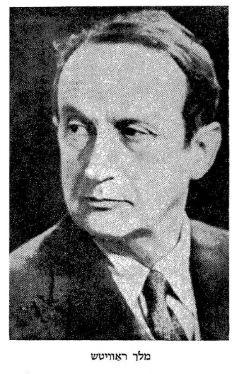
As regular readers of this newsletter will know, we often feature recordings of Yiddish writers made at Montreal’s Jewish Public Library. As one of the primary Yiddish cultural activists in Montreal, Ravitch was responsible, at least in part, for their existence in the first place. Of course, he features in them as well, whether he’s speaking, introducing other guests, or being honored for his contributions and accomplishments. You can listen to all of our Melech Ravitch recordings here.
Listen to Melech Ravitch at Montreal’s Jewish Public Library
Writer First
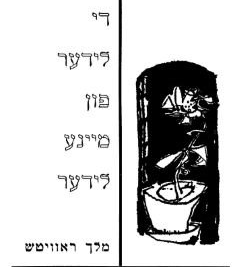
Ravitch’s prominence as a cultural activist and organizer has almost overshadowed his role as a writer. But he was, first and foremost, a writer, and his works include many volumes of poetry, essays, and memoir. You can read his books in our Steven Spielberg Digital Yiddish Library.
All in the Family
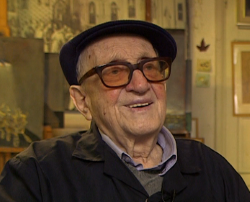
Melech Ravitch was so well-known by his pseudonym that it’s easy to forget it wasn’t his real name. His son, however, the renowned painter Yosl Bergner, continued to go by the original family name rather than his father’s nom de plume. Like his father, he also led a remarkable life, making his mark as an artist in both Australia and Israel.
In Translation
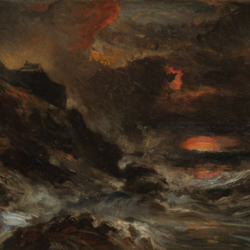
While Ravitch’s poetry can be challenging, he also wrote a quite readable three-volume autobiography, Dos mayse bukh fun mayn lebn (The Storybook of My Life), which contains numerous short chapters that can stand as independent memoirs. Here you can read two of them, both translated by Helen Mintz: “Prehistoric Landscapes,” which goes from 1908 to 1921, and “Wind, Snow, a Completely Darkened Forest, a Frozen River, and Me in the Middle of It All,” which takes place in Warsaw between 1921 and 1934.
Read “Wind, Snow, a Completely Darkened Forest, a Frozen River, and Me in the Middle of It All”
Paying Tribute
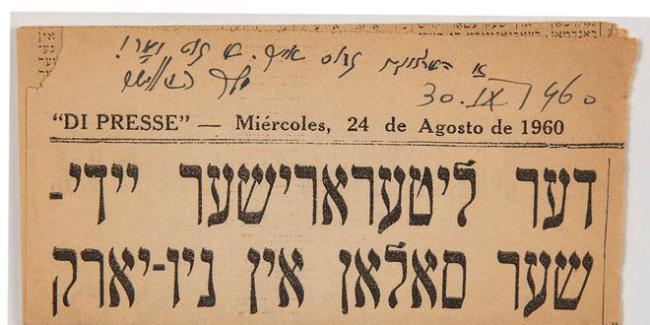
In addition to his poetry and memoirs Ravitch wrote a monumental five-volume work called My Lexicon, which consists of hundreds of individual portraits of Yiddish writers. The entries are affective, poetic, and deeply personal character sketches of the Yiddish luminaries within his wide circle, drawn from his own friendships and encounters. In this sketch he provides a heartfelt introduction to the poet Bertha Kling and her poetic style, emphasizing her leadership in the literary scene as a salon organizer and mentor.
Down Under
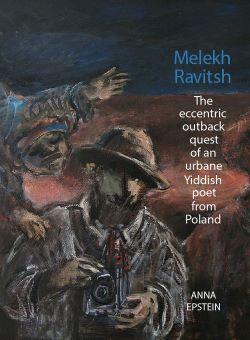
One of the most remarkable episodes from Ravitch’s life was his trip through Australia on behalf of the Freeland League. That voyage has become the subject of a book by author Anna Epstein, which tells the story of Ravitch’s 1933 trek across the Australian outback in search of a homeland for the threatened Jews of Europe. In this episode of The Shmooze podcast, Epstein talks about this remarkable adventure and the art that it eventually inspired.
